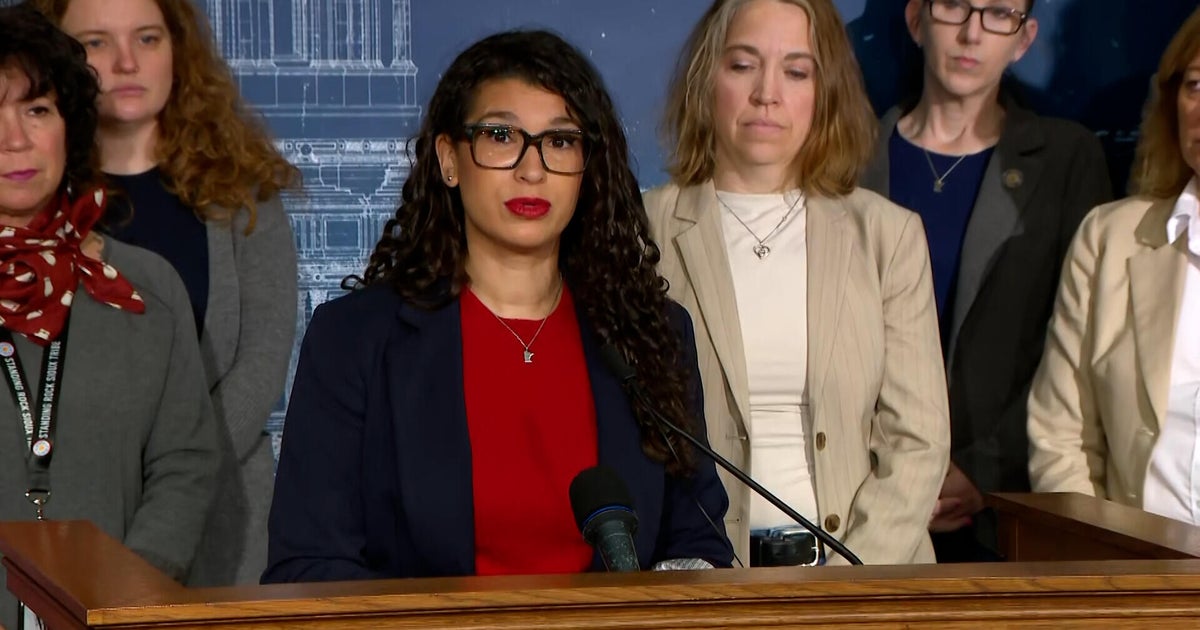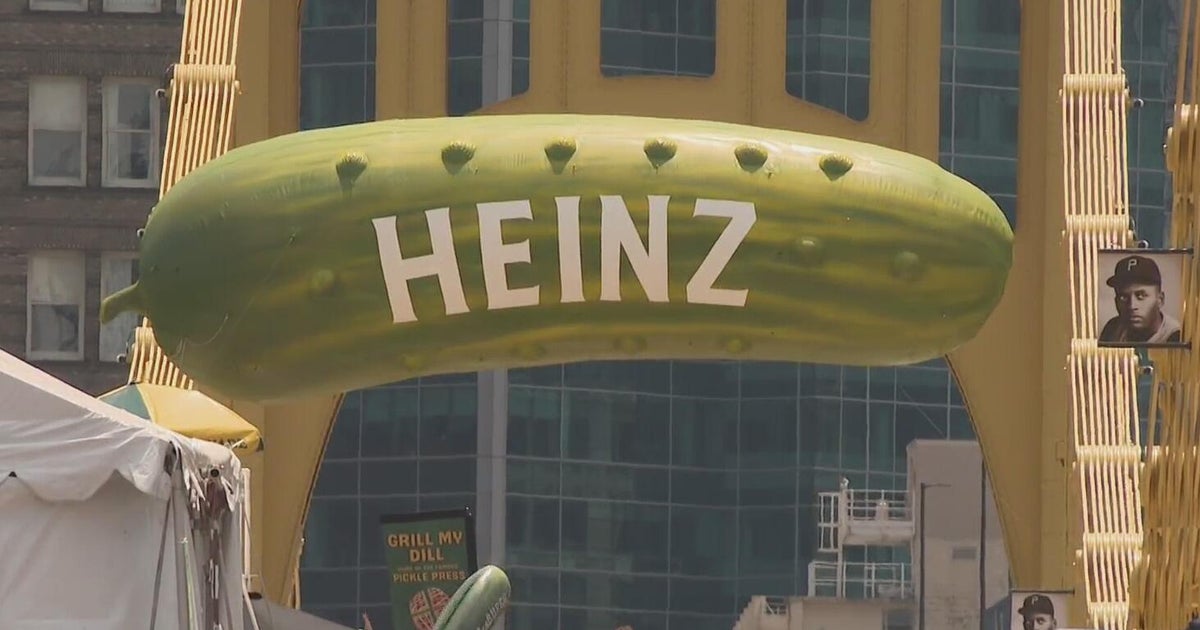Harris has yet to outline her plan for climate change. Here's what the Democratic Party platform says.
The Democratic Party devoted seven pages of its 90-page 2024 platform to climate policy, offering a few clues about what Vice President Kamala Harris could do to combat climate change if she wins the presidency.
Harris, who only emerged as her party's nominee in mid-July after President Biden dropped out of the race, has not yet articulated her own climate policy. The topic was scarcely mentioned at the Democratic convention this week, making the party platform the only guide to what climate policy in a Harris White House might be.
During her nearly 40-minute long address at the Democratic National Convention on Thursday night, she talked about the economy, the war in Gaza, and immigration, but made just one brief reference to the issue in outlining the "fundamental freedoms" at stake in this election — "the freedom to breathe clean air, drink clean water, and live free from the pollution that fuels the climate crisis."
Stevie O'Hanlon, a spokesperson for The Sunrise Movement, a youth-led climate group, said that Harris' decision not to speak more forcefully on climate change – both at the DNC and leading up to it – was a "missed opportunity."
"Anyone running for president has a responsibility to talk about it," she said.
While voters wait for more details about how she'll tackle climate change, here are some key takeaways from the party's platform on climate.
Continue to build on the groundwork of the Inflation Reduction Act
In keeping with the goals of the Inflation Reduction Act, which made investments in curbing health care costs and combating climate change, the Democratic Party's platform calls for the investment in clean energy, such as solar and offshore wind, and the electrical grid, with a focus on delivering these technologies to the communities most impacted by climate change.
The "clean energy boom," the platform says, is projected to triple clean-energy generation, cut electricity rates by 9% and cut gas prices by as much as 13% by 2030.
To bring this new technology online, Democrats say they'd create new taxpayer-funded jobs through executive action and triple the American Climate Corps — a program training 20,000 young people in clean-energy and climate-focused jobs — by the end of the decade. According to a White House press statement on the second anniversary of the legislation, the act has created over 330,000 jobs.
Critics of the Inflation Reduction Act call it a "climate slush fund" and question whether or not it will meet the ambitious goals outlined by the Biden administration to reduce carbon emissions. A Princeton University study last year estimated the legislation would make a significant dent in curbing emissions but would fall short of the nation's 2030 climate goals.
The rollout of rebates on solar panels, heat pumps, home insulation and electric vehicles has come with its own hiccups. It's been slower than expected, and those who've taken advantage of the savings have mostly been on the higher end of the income scale, leaving some to question whether the policy benefits the middle class.
Make farming net zero-emissions by 2050
The platform also calls for the adoption of practices that will bring farming in the U.S. to net-zero emissions by 2050, which would make it the first country to do so. USDA data says farming accounted for 10% of U.S. greenhouse gas emissions in 2021.
According to the platform, over 80,000 farms have adopted "climate-smart practices" with funding from the Agriculture Department aimed at reducing carbon emissions and improving soil health.
Despite the progress, full decarbonization is expected to be an uphill battle. Experts point out, according to The Conversation, that many of the proposed climate measures can more readily be put into practice by large corporations but may be impractical or simply too expensive for small farmers to adopt.
Electrify the transportation sector
The Democrats also aspire to eliminate the transportation sector's carbon footprint by 2050. Vehicles are responsible for a third of U.S. greenhouse gas emissions.
The Biden administration issued a rule requiring about 56% of all new vehicle sales to be electric by 2032; however, Americans aren't yet sold on EVs, a poll earlier this summer found. Consumers worry about range and the length of time it takes to charge EVs. According to Kelley Blue Book, around 1.2 million electric cars were sold in 2023, less than 10% of total sales in the U.S. vehicle market that year.
The slow rollout of electric charging stations presents a formidable challenge for the Biden administration, which has barely made a dent in its goal to install 500,000 chargers nationwide by 2030. As of June, just seven chargers have been rolled out so far this year, the car news site Autoblog noted.
Fund climate agencies and research
Democrats say they'll increase funding for the Environmental Protection Agency, as well as for NASA, NOAA, the National Science Foundation and other agencies to ensure "America leads the world in clean energy innovation." This would require congressional approval, which would likely be challenging even with Democratic majorities in both the House and Senate, and even more difficult if Republicans win control.
"Stand up to Big Oil"
The platform also promises to be tough on Big Oil, as the companies struggle to maintain their grip on the energy industry. Moving forward, the party says it will "eliminate tens of billions of dollars" in oil and gas subsidies, fight price-gouging, and increase protections against drilling and mining in the Arctic.
But these promises don't mean the Democrats are turning their backs on gas entirely. Under the leadership of Mr. Biden, fossil fuel jobs have actually grown more quickly than clean energy jobs, and U.S. oil production has hit record highs, according to reporting by Reuters that tracked his record on fossil fuels. Harris has not yet released her energy policy plans, but her campaign has said that she will not ban fracking if she is elected president.
Shore up infrastructure
The Democrats propose rolling out new roads, bridges and ports that can stand up to the worst effects of climate change. In 2023, the United States suffered from a record-breaking $28 billion in climate disasters. The Bipartisan Infrastructure Deal, which was passed under the Biden administration, allocated $50 billion for protection against extreme weather.
The fate of thousands of these kinds of construction projects started under Mr. Biden will depend on who ends up in the White House. Some Republicans have said they oppose continuing to fund the measure.
Enhance "America's global climate leadership"
Democrats want the U.S. to lead the way in transitioning from fossil fuels to clean energy.
"As Democrats, we believe the United States has an indispensable role to play in solving the climate crisis, and we have an obligation to help other nations carry out this work," the party platform says.
One of the most visible ways the U.S. has taken on this role is in negotiating and signing the Paris climate agreement in 2016, during the last months of former President Barack Obama's administration. Under the accord, countries agreed to lower greenhouse gas emissions to try to slow the rise in global temperature. After he took office in 2017, former President Donald Trump withdrew the U.S. from the agreement, and Mr. Biden signed an order to reenter it on his first day as president.



